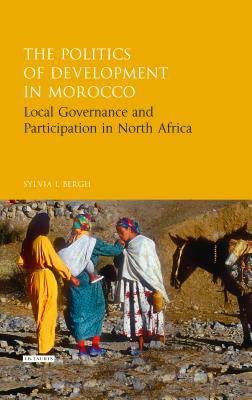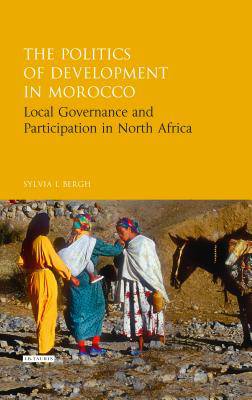
- Afhalen na 1 uur in een winkel met voorraad
- Gratis thuislevering in België vanaf € 30
- Ruim aanbod met 7 miljoen producten
- Afhalen na 1 uur in een winkel met voorraad
- Gratis thuislevering in België vanaf € 30
- Ruim aanbod met 7 miljoen producten
Zoeken
The Politics of Development in Morocco
Local Governance and Participation in North Africa
Sylvia I Bergh
€ 271,45
+ 542 punten
Omschrijving
Since the mid-1990s, Morocco has sought to present itself as a model of genuine and gradual reform, with decentralisation as a key tenet of this. Here, Sylvia Bergh investigates the dynamics of popular participation and local governance, testing the extent to which the current structure builds local capacity, or whether it is, in fact, a tool for 'soft' state control. She narrates the realities of local administration and civil society to shed critical light on questions of democratic transition in North Africa. Her assessment of decentralisation and participatory development projects in rural Morocco, and the legal and policy frameworks in which they operate, leads to the conclusion that they have generally not yet led to an expansion of a civil society able to build local capacity or enhance bottom-up empowerment. Grounded in an approach of the 'anthropology of policy', this book makes an important contribution to literature on the democratisation, development and governance in North Africa.
Specificaties
Betrokkenen
- Auteur(s):
- Uitgeverij:
Inhoud
- Aantal bladzijden:
- 368
- Taal:
- Engels
- Reeks:
Eigenschappen
- Productcode (EAN):
- 9781848859210
- Verschijningsdatum:
- 30/03/2017
- Uitvoering:
- Hardcover
- Formaat:
- Genaaid
- Afmetingen:
- 145 mm x 218 mm
- Gewicht:
- 544 g

Alleen bij Standaard Boekhandel
+ 542 punten op je klantenkaart van Standaard Boekhandel
Beoordelingen
We publiceren alleen reviews die voldoen aan de voorwaarden voor reviews. Bekijk onze voorwaarden voor reviews.











